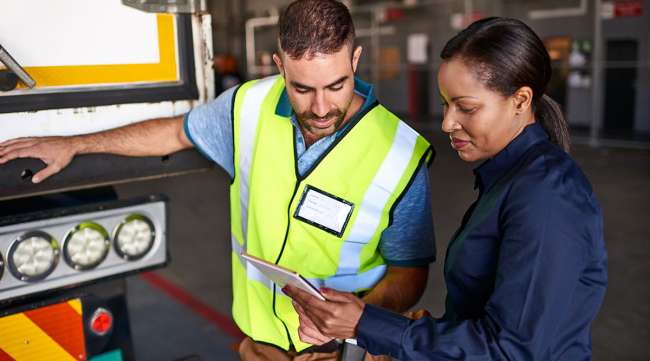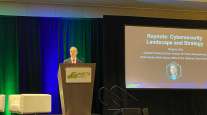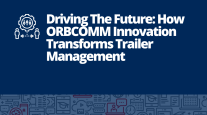Staff Reporter
NMFTA Establishes New LTL eBOL Standards

[Stay on top of transportation news: Get TTNews in your inbox.]
The National Motor Freight Traffic Association announced an update to its electronic bill of lading standards March 26 to help digitize less-than-truckload shipping.
The NMFTA Digital LTL Council based the new eBOL 2.1 standards on feedback it received from carriers. Standardizing the eBOL helps to ensure data is transmitted more accurately and efficiently. It’s a major step in a larger initiative to digitize the entire less-than-truckload shipment life cycle to bolster efficiency and accuracy over the next several years.
“Creating a digitized standard by which everybody is on the same platform improves the quality of the shipment, eliminates a lot of errors and helps to reduce costs,” said Paul Dugent, executive director of the NMFTA Digital LTL Council. “If you receive a paper bill of lading, that motor carrier then takes that paper bill of lading back to the terminal, and that information gets keyed into the carrier’s billing system. So there’s an opportunity there for errors.”
Dugent added that those errors could result in incorrect charges and misroutes. But eBOL reduces the chances of incorrect information by eliminating the data entry process. The eBOL 2.1 update aims to further this by creating a standard across the LTL space and for application programming interfaces.

Dugent
“APIs have been around for a while, and by establishing a single standard, it’s a benefit to carriers’ IT structures because they’re not having to create one-off APIs for a lot of different customers,” Dugent said. “Instead, they can have one API that everybody can use, and again, that becomes much more efficient.”
The NMFTA Digital LTL Council focused on shipment visibility and freight exception handling when it released its first set of standards in late 2021. The standards were updated to address issues that users have expressed by allowing them to update or delete data using relevant tracking numbers as the key identifier, use nine-digit postal codes as a valid format, have more weight unit options and use standard carrier alpha codes.
“We were focusing on the top 10 LTL carriers in the industry because they represent probably about 85% of the revenue in the industry and so far, we’ve gotten probably about eight,” Dugent said. “But we’ve gone beyond the top 10 and have gotten probably about 16 carriers that have adopted the eBOL. And so now we’re really trying to focus on [third-party logistics providers]. We have two large 3PLs that have adopted it.”
RELATED: C.H. Robinson Announces Electronic Bill of Lading for LTLs
Dugent added that once the carriers were on board, that influenced the 3PLs. The hope is that once enough 3PLs get involved, that will encourage shippers to adopt the new standards. He even noted there has been some interest on the truckload side, though the BOL process tends to be different for those carriers since they typically deal with one destination.
“The bill of lading with truckload is much simpler than an LTL bill of lading, and there are some differences,” Dugent said. “[Truckload carriers are] focusing on scheduling, which is probably a bigger issue for them than maybe LTL. But they don’t have the pickup requirements that LTL carriers have. They don’t run a route, so they don’t have to deal with that. They don’t have any issues with preliminary freight charges.”
Greg Hewitt of DHL Express considers whether the trucking industry is prepared for a greener future. Tune in above or by going to RoadSigns.ttnews.com.
The eBOL 2.1 standards were also designed to be compatible with the existing versions already downloaded and implemented across carriers. The NMFTA Digital LTL Council plans to focus future updates on being more user-friendly, thorough and comprehensive to help every supply chain sector operate more effectively.
“We have various workshops that are working on other APIs that are part of our API road map,” Dugent said. “But the eBOL workshop continues to get requests by the users saying they’d like to see this change or that addition. We accumulate all those, and that’s what’s been added in version 2.1. We’ve taken all the user responses and requests and incorporated them into this new version.”
Want more news? Listen to today's daily briefing below or go here for more info:





